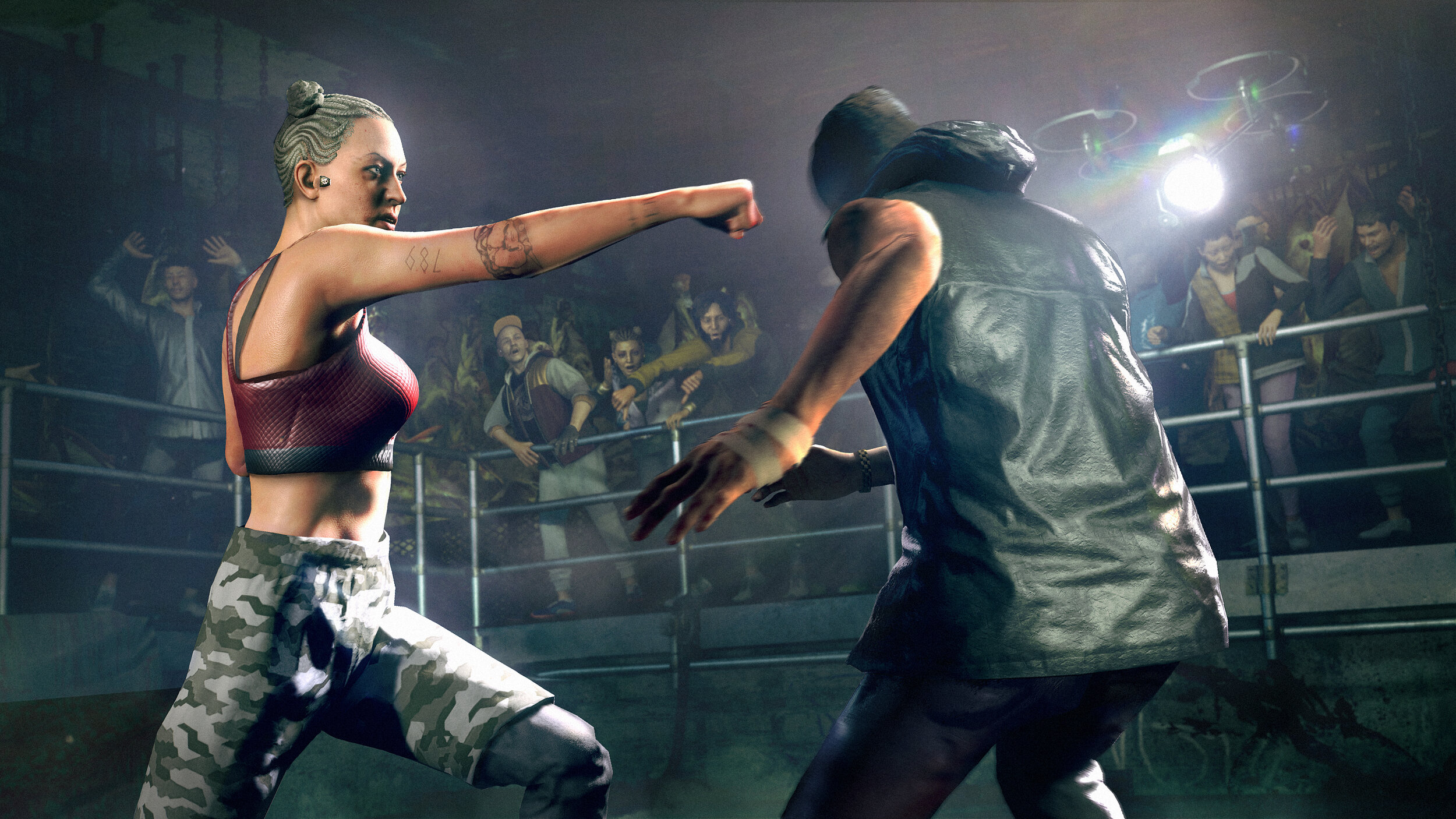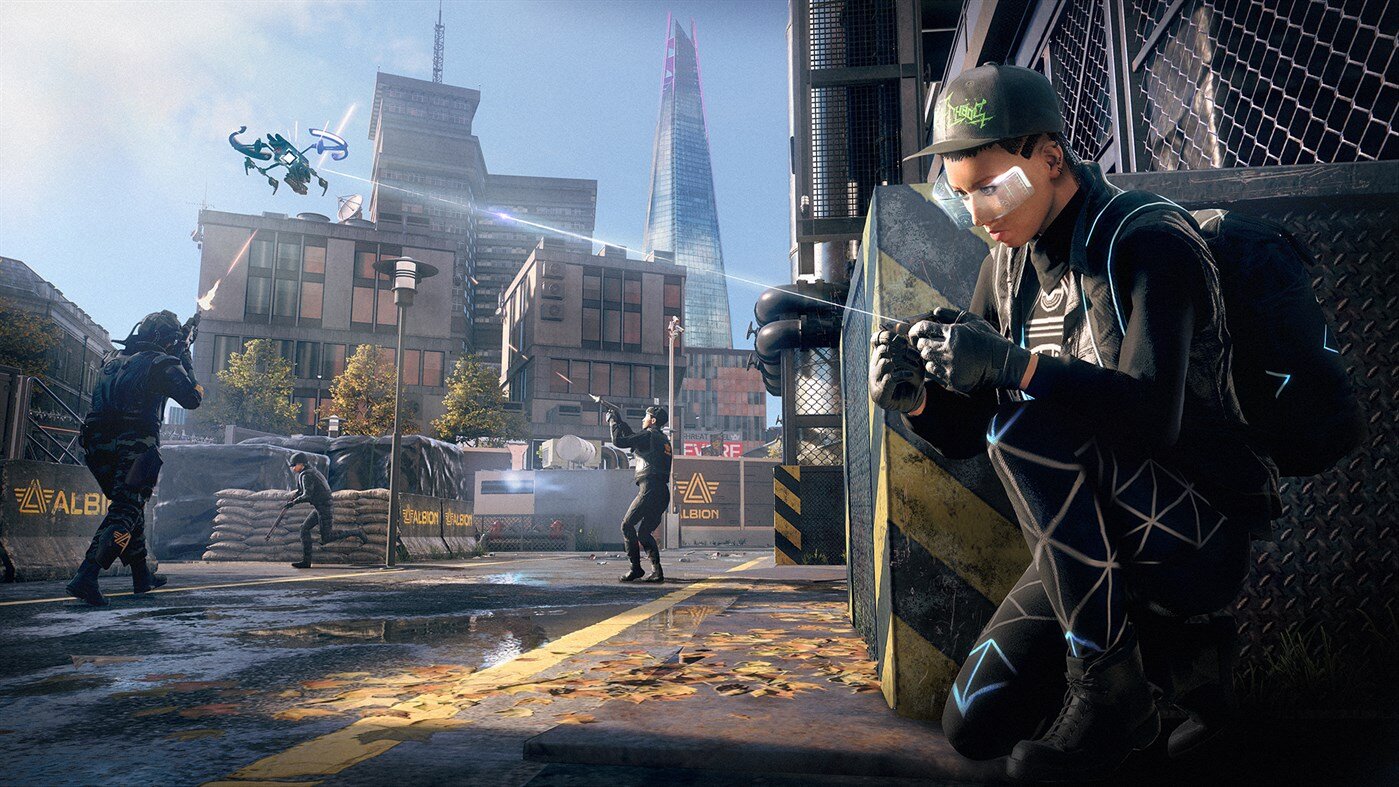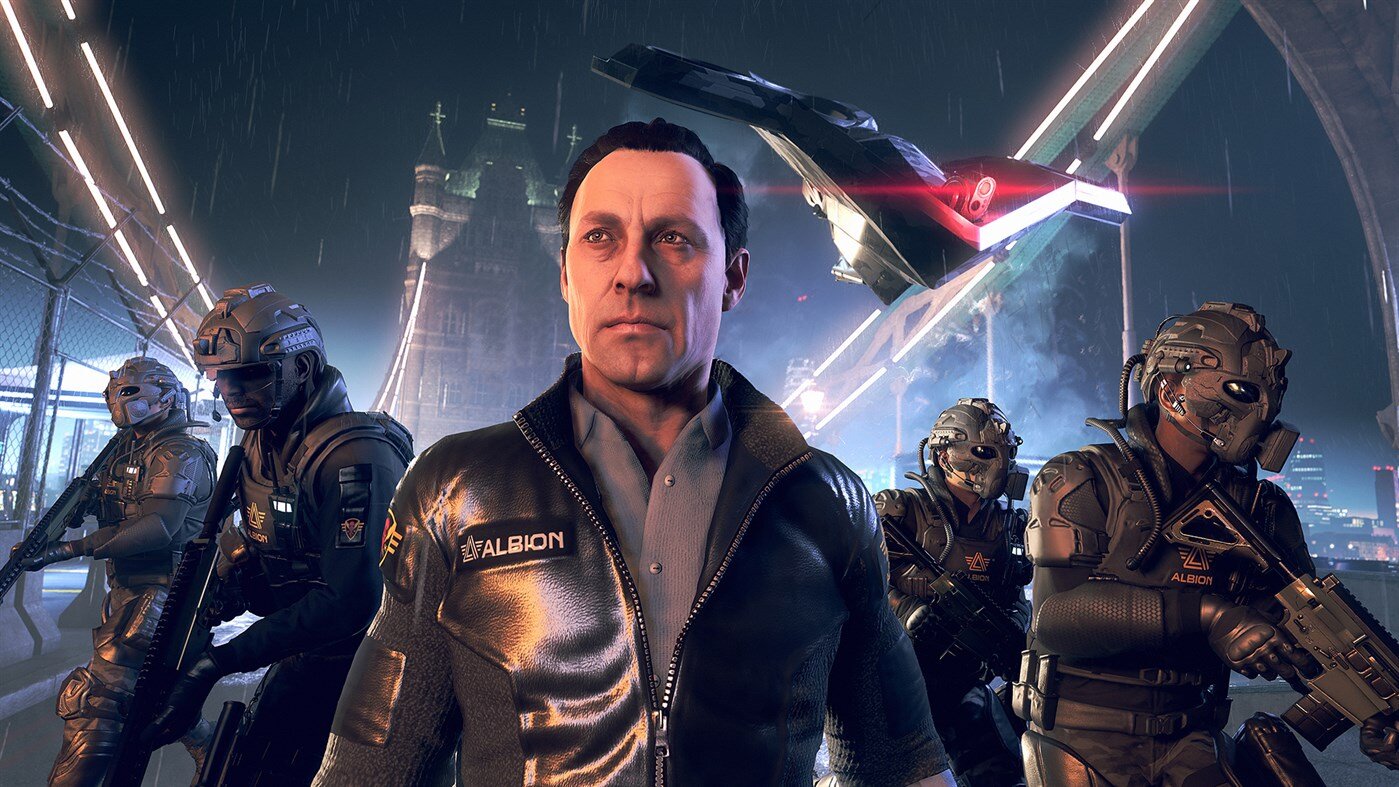Watch Dogs: Legion - Review

by Ubisoft Toronto
code for Watch Dogs: Legion was provided by Ubisoft Canada
The sword that is Watch Dogs: Legion — the third game in the Watch Dogs (no more underscore) franchise by Ubisoft’s Toronto studio — is sharp on two sides. It brings plenty of aspects to love for both fans of the series, and folks that may have previously written it off.
On one side, players that put in time with Watch_Dogs or Watch_Dogs 2 — like I did, you can read that review of WD2 here on LGND — will find a lot of the same things they love with this latest title. In small moments, Legion feels dated, but all of the juicy tech fun that Watch Dogs fans are intimate with return here with minimal tweaks. Probably for the better.
Luckily for all of us, Ubisoft tends to start soft with new ips and concepts, and rapidly pick up steam as the years and iterations go by. Assassin’s Creed was a tad rough, as watch the first Watch_Dogs. By the time people get their hands on Legion, everything that makes this series special becomes amplified.
No one leans into what makes their video games unique like Ubisoft does.
Having spent my hours playing Legion on the current generation of console hardware, the visuals are not something that will leap from the screen to slap you in the face — they even get close to ugly in some circumstances — but it is good looking overall. In less than a month, we will be playing this on next-gen systems, with lightning-fast load times, and hopefully some stunning graphics. I cannot wait to see what that version of Watch Dogs’ London looks like.
To the players that never gave this franchise a shot, or wrote off the series after experiencing some or all of Watch_Dogs or Watch_Dogs 2, Ubisoft Toronto has removed some of the least catchy thing about both of those games; the story.
Now, it’s not that Watch Dogs: Legion lacks a story in particular. Rather, this third title magically doesn’t hang its gameplay experience on a single protagonist.
“Play as anyone” is the game’s slogan, and somehow they’ve managed to make that more compelling than having a true hero. The uprising is the champion of Legion.
Part of me feels bamboozled. How is it that they have dissolved the traditional narrative tools of large single-player video games, yet have managed to make me care more about the Anyone that I’m playing.
Open world gaming tropes are there. Unlock boroughs of London in order to help revolt against the overly-aggressive private law enforcement company Albion, that has taken over the region of England. Doing so, will provide players with multiple side missions, collectibles, and plenty of tasks to complete.
Aside: Ubisoft says they are aware of some technical bugs — and this game has the common open-world glitches — and are working on pushing a fix in the coming days. So far, I have only experienced a single full-game crash, and minimal funny open-world quirks.
Best of all, these tasks feel far less burdensome thanks to the lack of a linear story. Perhaps it is the trust and muscle memory we have developed by playing quick-hit games like those found on mobile devices. At this point, I feel ten times more likely to invest a larger amount of time over the course of a wider window in Legion, than I have or would naturally for most single-player open-world games.
My progress, where my current character is, and my plans to rise up in London can easily be put on hold, only to be picked up with the same gusto, hours, days, weeks later.
Even all of the side-missions that involve recruiting whom ever you please, those are so much fun to just play for a few minutes here and there while the kettle boils. That brings us to the big pitch. Ubisoft’s greatest idea for the hacker near-future sci-fi meets Assassin’s Creed franchise.





In Watch Dogs Legion you can recruit anyone in London.
When you find a civilian among the famous London streets, you can initiate a recruitment, which will provide you a mission — sometimes simple, sometimes intricate — that will prove you are trust-worthy to them, and unlock them as a member of your customizable collection of revolutionaries.
Along the path, you will find illegal street gangs, mysterious cult-types, those blasted Albion folks, and more.
“Ubisoft has pulled off a wonderful magic trick.”
Throughout my time so far, I have only run into a few instances in which recruiting random people wasn’t an option. Even people who have a dislike for DedSec — the riotous hacker revolution group — can be added to your list of potentials to be checked on later. Some, depending on your actions, will sway their opinion of the collective, allowing for them to be recruited.
It sounds like gaming of the future. Play as any NPC in a vast open-world? It cannot be, can it? Well yes. But slow down. Ubisoft has pulled off a wonderful magic trick with Legion, rather than revolutionized gaming all together.
Aside: I want to ensure that my sentiment is clear here. I am in no way saying that this trick doesn’t work, or that I do not absolutely adore this trick, or that their big-brain idea people should not be proud of their idea-turned-actuality. Just that is it is a trick. In practice. Disguised as a revolution.
Technically though, Ubisoft Toronto have hidden semi-traditional character classes, behind randomized back-stories, random perks, and random visuals. There are brawlers, hackers, arms-specialists, and more, all hidden under a properly lovely guise of randomization.
When things begin to boil down, and your version of DedSec starts to take form, you realize that Londoners are like Pokemon. You’ve got to collect them all. No, seriously. The random perks, and standard perks make for rounding out your team to be both a joyous occasion and a useful one.
profile citizens to see if they would be a good fit for DedSec
Gaining access to someone that have security clearance at Albion, someone that can get into construction sites, someone with the ability to gather more ETO (the in-game currency), someone that can summon a drone, and so much more, make the collecting of operatives the highlight of Watch Dogs: Legion.
There are two different types of play-styles when it comes to building out your DedSec London. If you keep the game in normal mode, your characters can be arrested or sent to the hospital depending on how they are taken down (some characters have perks that change how long your members are in jail, or how long they spend at the doctors for mending). Additionally, Ubisoft developed a perma-death mode, where you will lose your operatives forever if you get killed. It is hard-mode for your collect-a-hacker.
Aside: Until Ubisoft fixes some of the tiny bugs that could spring up on you during missions, I would suggest not playing in perma-death mode just yet.
Solving the game’s puzzles simply gets more exciting the more tools you have at your disposal. One small thing that I loved is that if you are to attempt a mission, and realize that you’ve got the wrong operative, you can swap them out with ease.
Unlike the character swap in Rockstar’s GTAV which sees you overtake the character as they were living their life sending you to a different part of the map if that’s where they were when you took over, Legion brings your operative to you, swapping it out in a neat little cinematic that sees your current character chat up the new one.
Other tiny aspects of Legion that I adored is the auto-drive feature. With no way-point marked on the map, your car (with your character in it) will drive around aimlessly like other NPC vehicles. With a way-point you will be driven to your destination like a trip filled with leisure at the hands of an artificial driver. Your AI cruise will follow most traffic rules, and act as if it were an NPC vehicle. Just with a player-indicated goal.
Unfortunately — and I’m not entirely certain why this stirred my ire to the degree that it did — you cannot use your in-game menu while in auto-drive mode. It would be nice to check on those upgrades, dig through your audio logs, or review potential recruits, while you are driven to your destination.
four-player co-op is coming in the first big update for Watch Dogs: Legion
While most open-world games tend to distract players and give them “tools” to get lost spending hours unlocking numerous things that ultimately do very little, Watch Dogs: Legion feels more like a plate-spinning game.
“I am terribly excited to see what the next few months bring for Watch Dogs: Legion.”
Not once did I feel bad for not following the single-threaded story. Because there really isn’t one. Big missions are events that can change larger things around London, but every little thing feels far more impactful, when spread out.
Aside: As of now, I am uncertain as to whether or not my enjoyment and the sheer fun I am having with Watch Dogs: Legion — born from its designed lack of streamlining the story — is due to the current situation. I want less of a big investment. Having something that I can just pick up and put a few minutes into, all while enjoying the gameplay has been rather nice. Had I been in a place where my desires were something deeper, Legion may not be for me.
Ubisoft is is bringing a whole mountain of modern gaming classics to the table with Watch Dogs: Legion. You will have battle passes, downloadable content, free updates to the campaign and civilians, co-op multiplayer, player-versus-player, and more.
At the end of the day, I am terribly excited to see what the next few months bring for Watch Dogs: Legion. And I think you should be too.
With the recent extra delay to Cyberpunk 2077, perhaps more gamers will give Watch Dogs: Legion a shot. My current inability to play Cyberpunk sure did impact how much time and fun I have been having with Legion.
The one gripe some might have with the setting and “message” of Legion is that the oppression being risen against, may hit a little too close to home for some. Considering current world climates. As a Canadian developer, perhaps Ubisoft feels like a partisan observer of Earth’s trials of today, but it’s important to note that no one is a by-stander, truly.
Developer — Ubisoft Toronto
Publisher — Ubisoft
Platform(s): PC, Xbox One, PlayStation 4
Coming Soon: PlayStation 5, Xbox Series X




